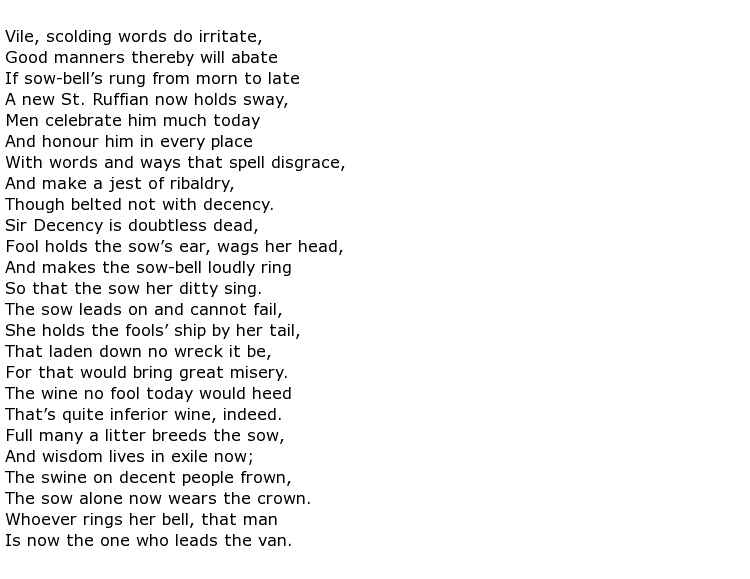 Sebastian Brant, whose name is sometimes spelled Brandt, was a writer and humanist of the German medieval period who is quite well known for the satirical piece Ship of Fools, also called Das Narrenschieff.
Sebastian Brant, whose name is sometimes spelled Brandt, was a writer and humanist of the German medieval period who is quite well known for the satirical piece Ship of Fools, also called Das Narrenschieff.
He was born sometime during 1457 in the French/German border city of Strasbourg. He had a fairly humble upbringing, his father was the keeper of an inn in the local area, but he was able to attend Basel University where he read philosophy from 1475 onwards. He eventually transferred his studies to law. He occupied a teaching post at Basel from 1484 and obtained a law doctorate five years later. He was married the following year and his wife gave birth to seven children by him.
Brant wrote poetry using a neo-Latin language and this brought him to the attention of some in the humanist circles close by but he soon realised that his opportunities for getting his work better known were limited so he set about translating the work he had already done, along with that of other writers, into German. He had a friend in publishing who helped him to get established as a serious writer and it was this publishing house that brought out Das Narrenschiff in 1494.
This allegorical work soon became popular not only in Germany but much further afield and it was the author’s intention to highlight the vices and weaknesses in society that were plain to see everywhere. The basic theme of the story, written in verse, is that a ship sets sail for the fool’s paradise, situated in Narragonia. The vessel is crewed by and contains only fools and they are met on the island by Brant’s creation, Saint Grobian – the saint of coarse and vulgar folk.
Here is an example of his work, the opening lines of a piece called Of Coarse Fools:

Brant was a German national socialist ahead of his time, who made a point of petitioning the Emperor at the time imploring him to push the Turks back to their homeland. He saw the threat from the Ottoman Empire as a serious risk to his country’s well being. Similarly he publicly congratulated Aragon’s Ferdinand the second, who had unified Spain following his conquering of the invading Moors.
As well as poetry he wrote a great deal on civil and canon law and most of this work was done while he resided in Basel although he returned to his origins in Strasbourg in 1500 where he remained for the rest of his life. He was made chancellor and thus found himself tied down by public affairs, to the detriment of his writing.
Brant recognised the widespread abuses carried out by many of those in the church and was never afraid to speak out against those responsible. At the same time though he was capable of writing lyrical, often beautiful, verse. An example of this was a collection of fables, which also contained some other stories from history. This was published in 1501 and was obviously based loosely on the original Aesop’s Fables but, in his version, witty and stylish verse commentaries were added.
Sebastian Brant died on the 10th May 1521 aged 64.

